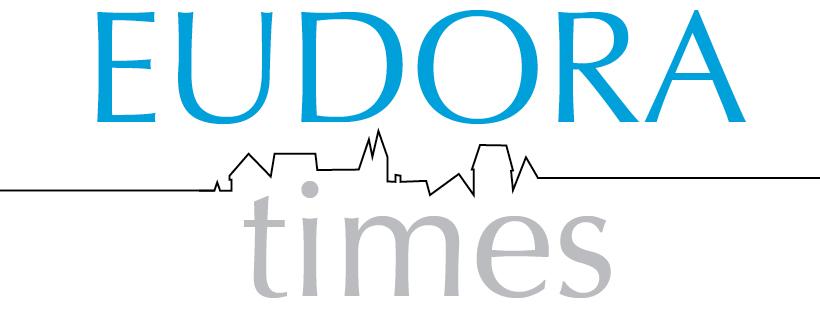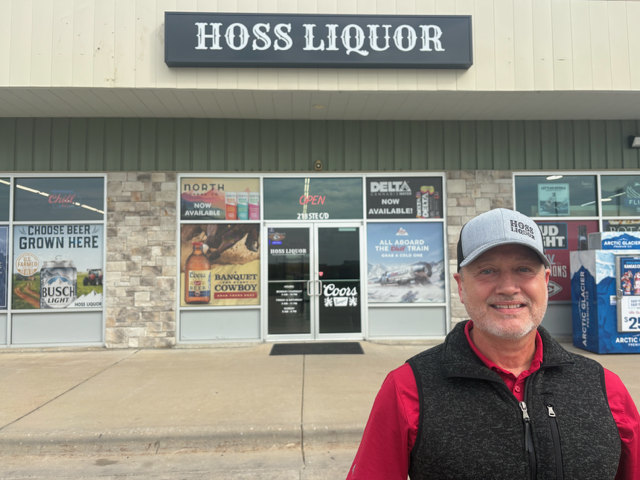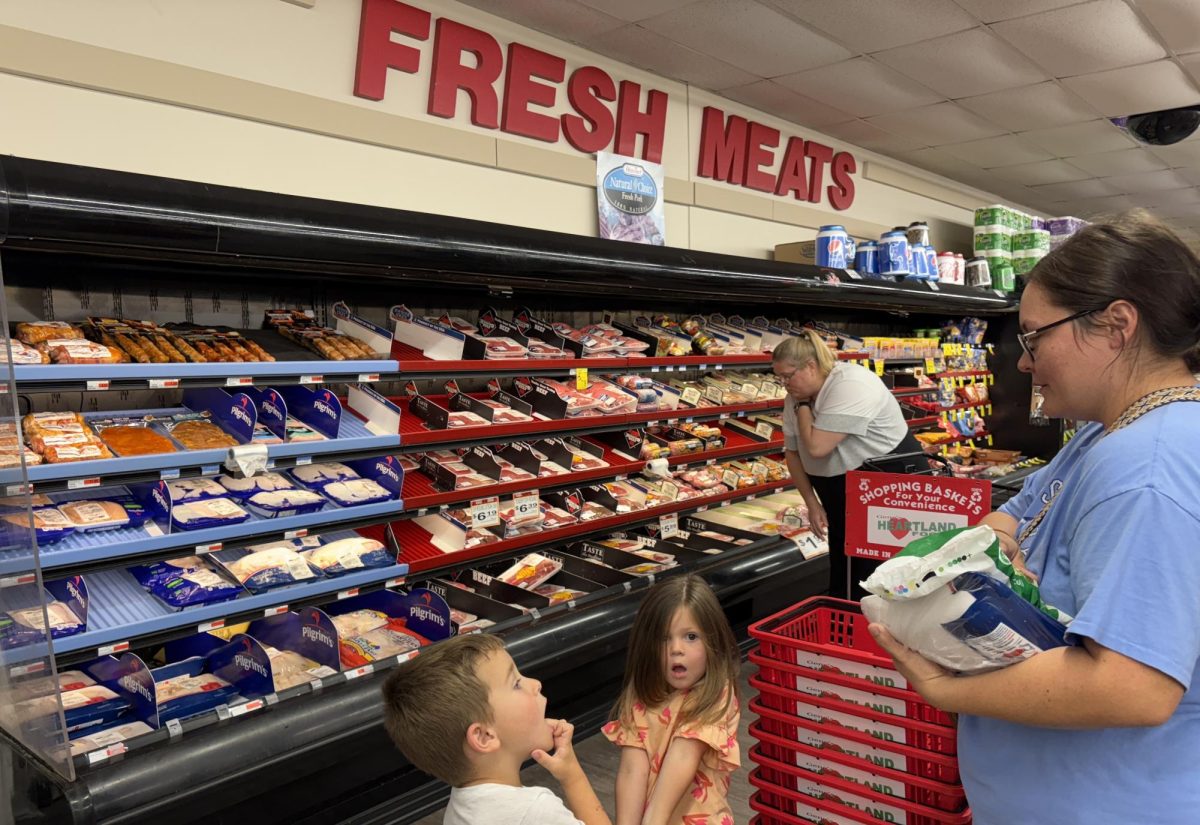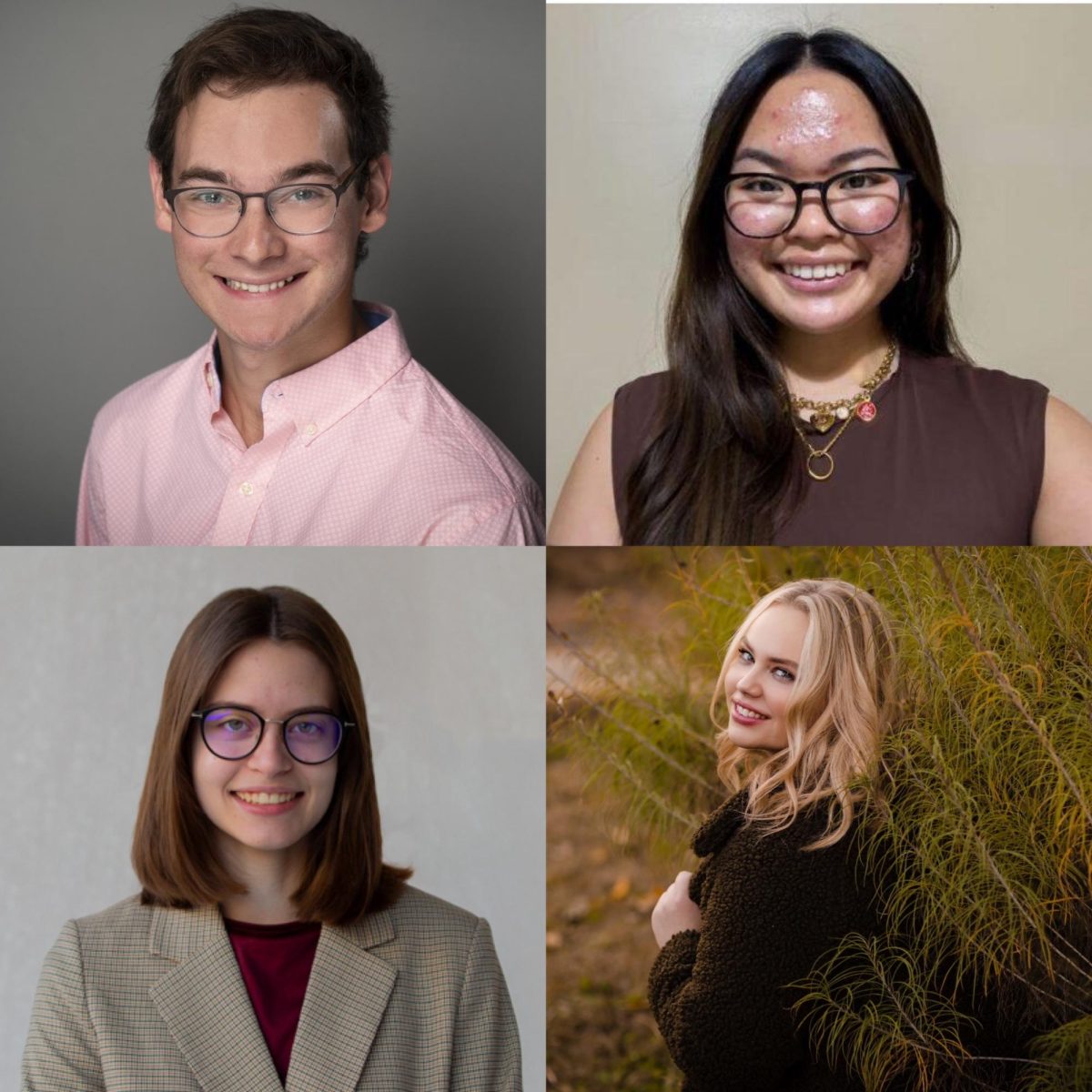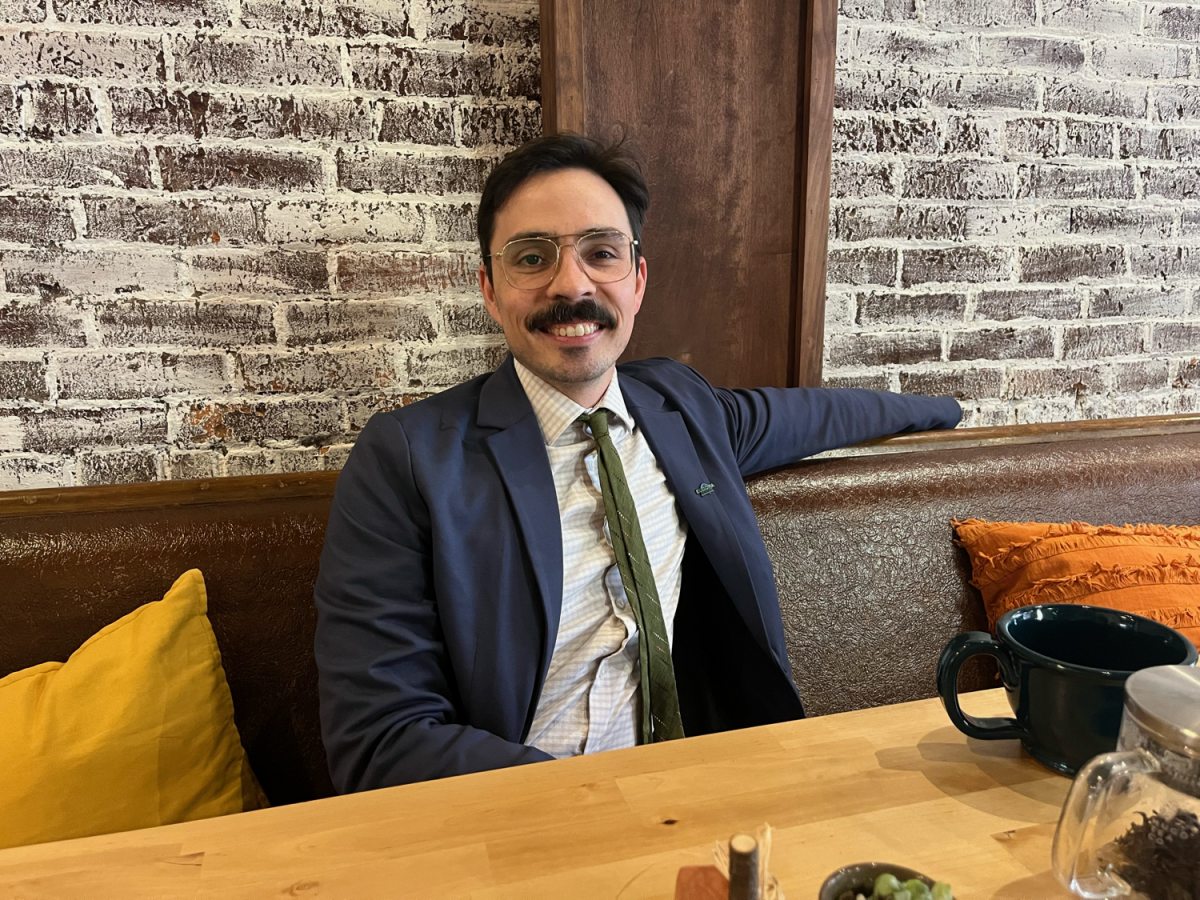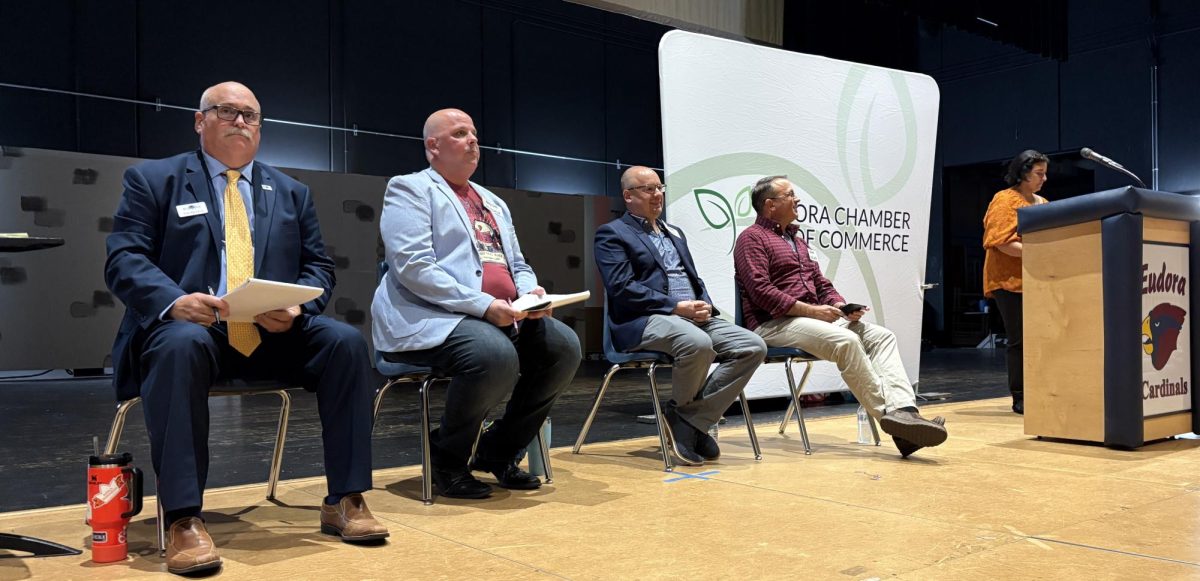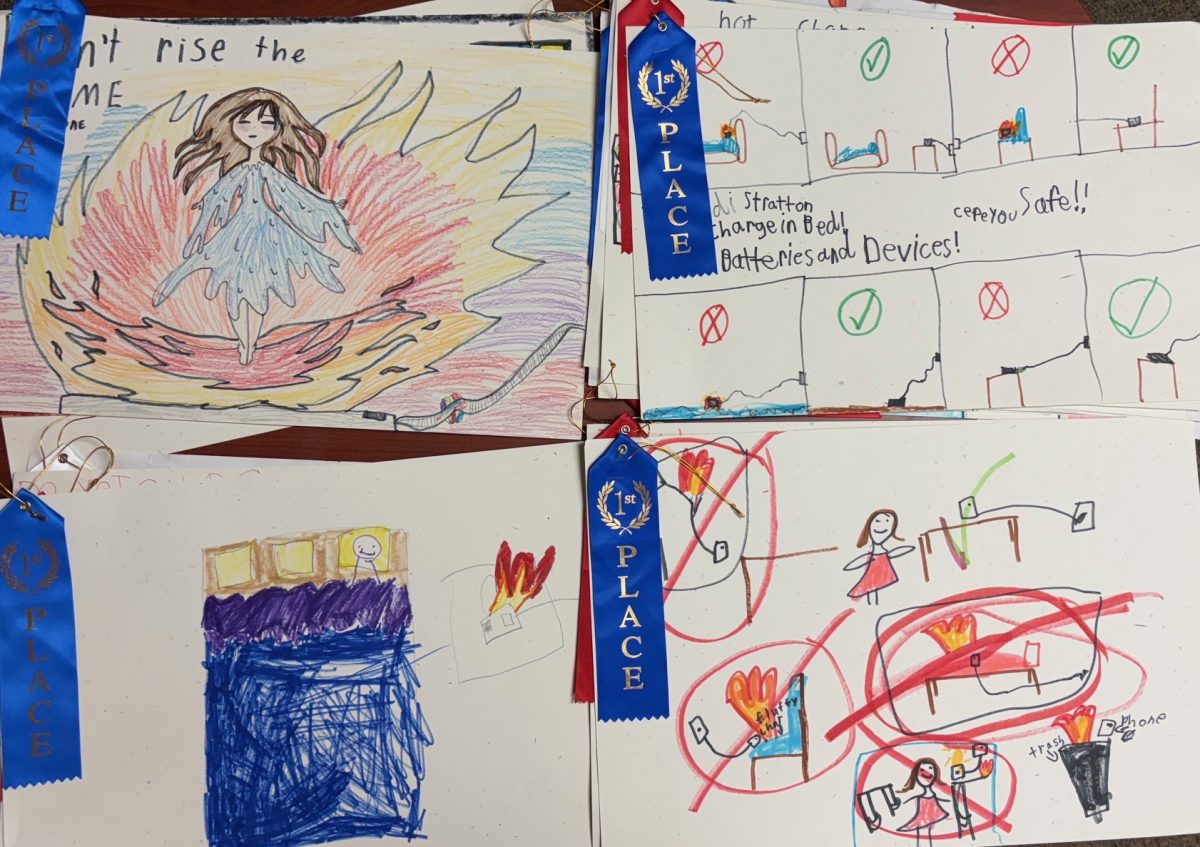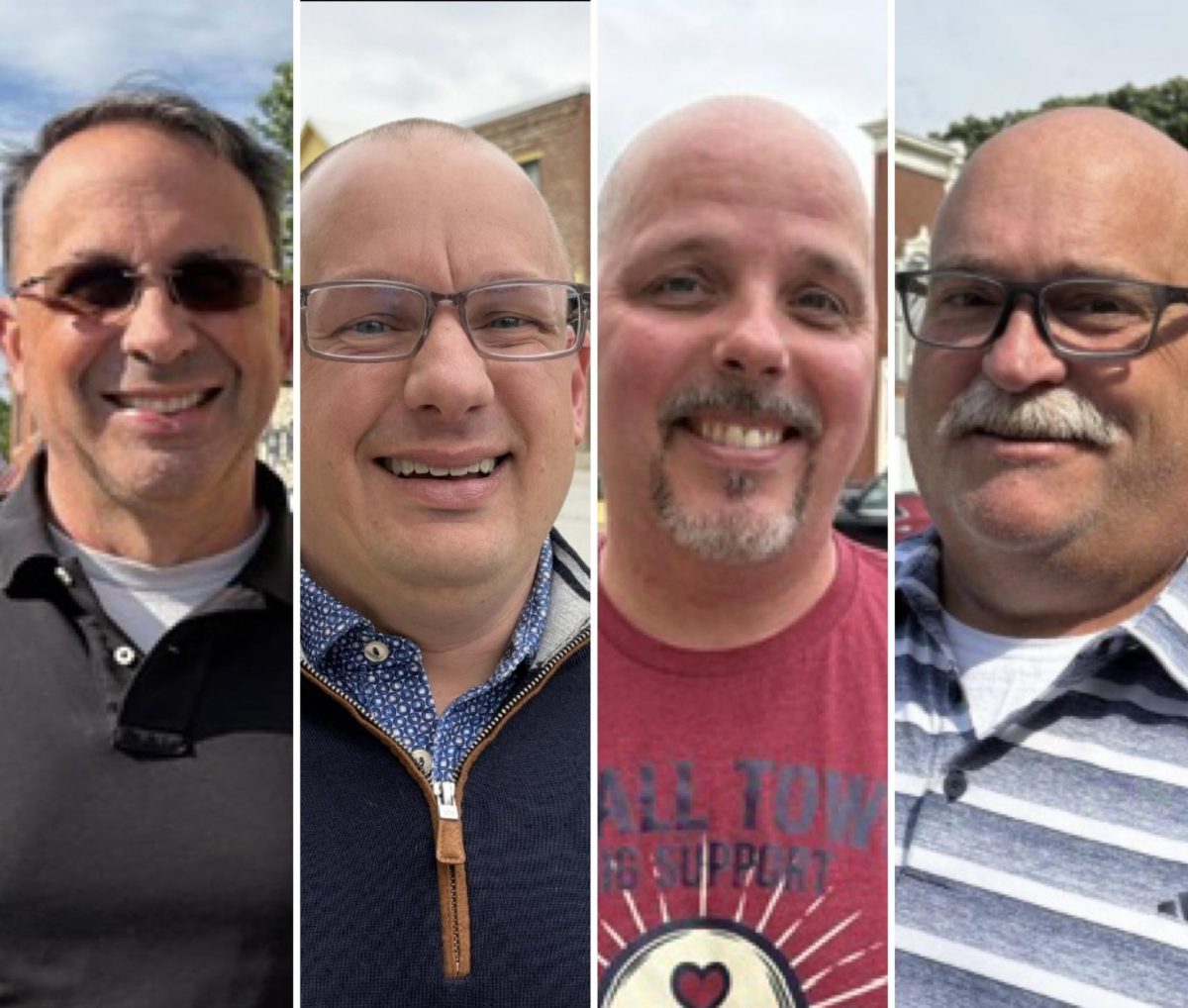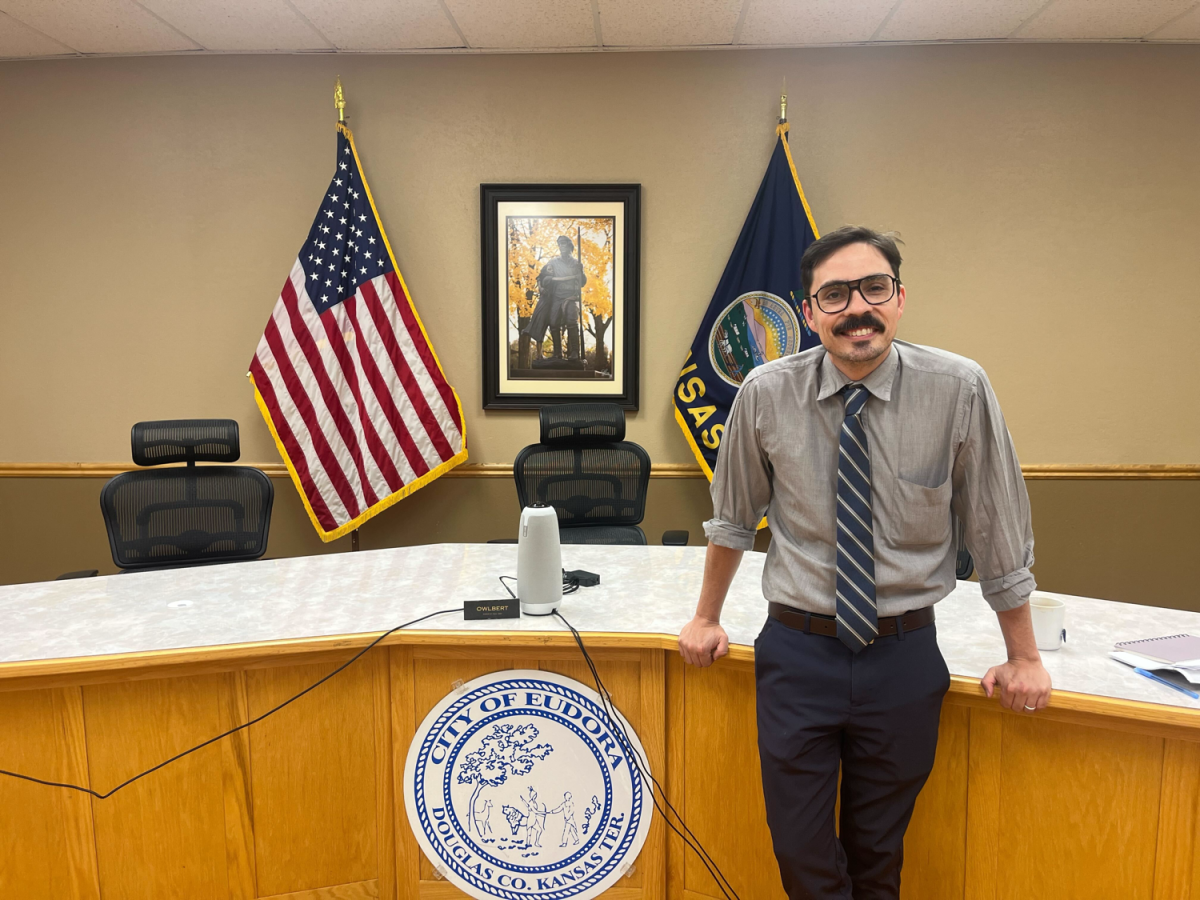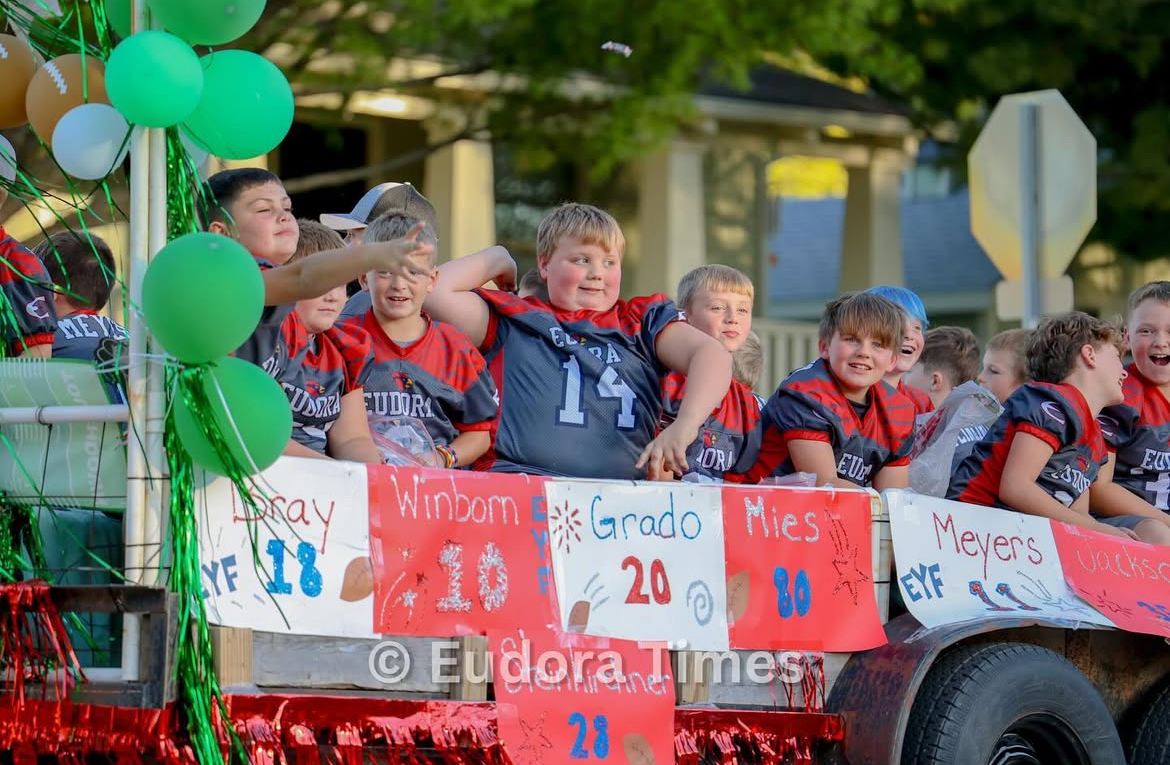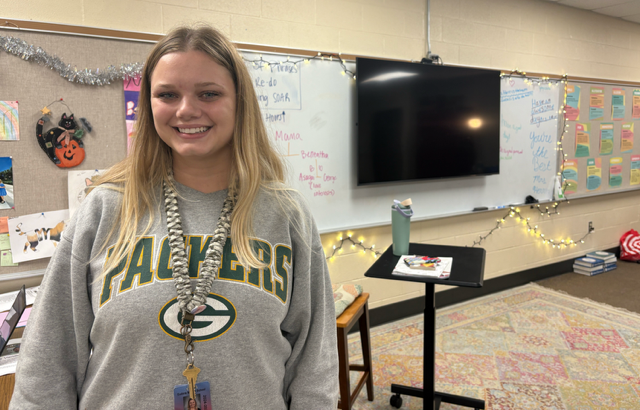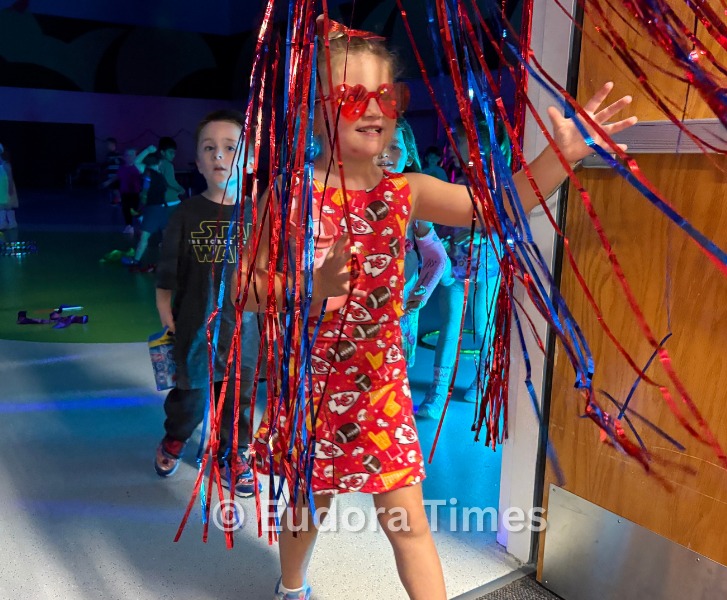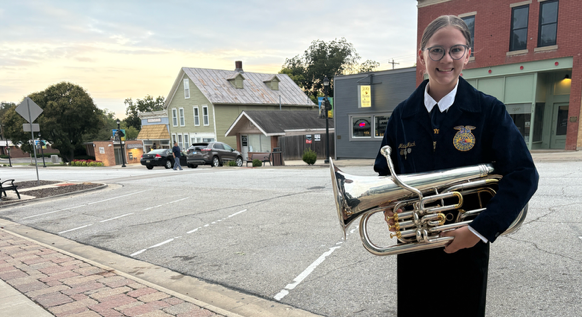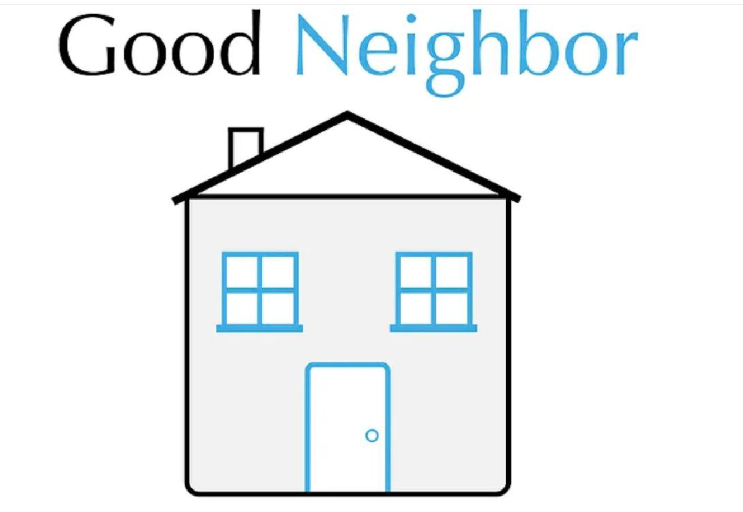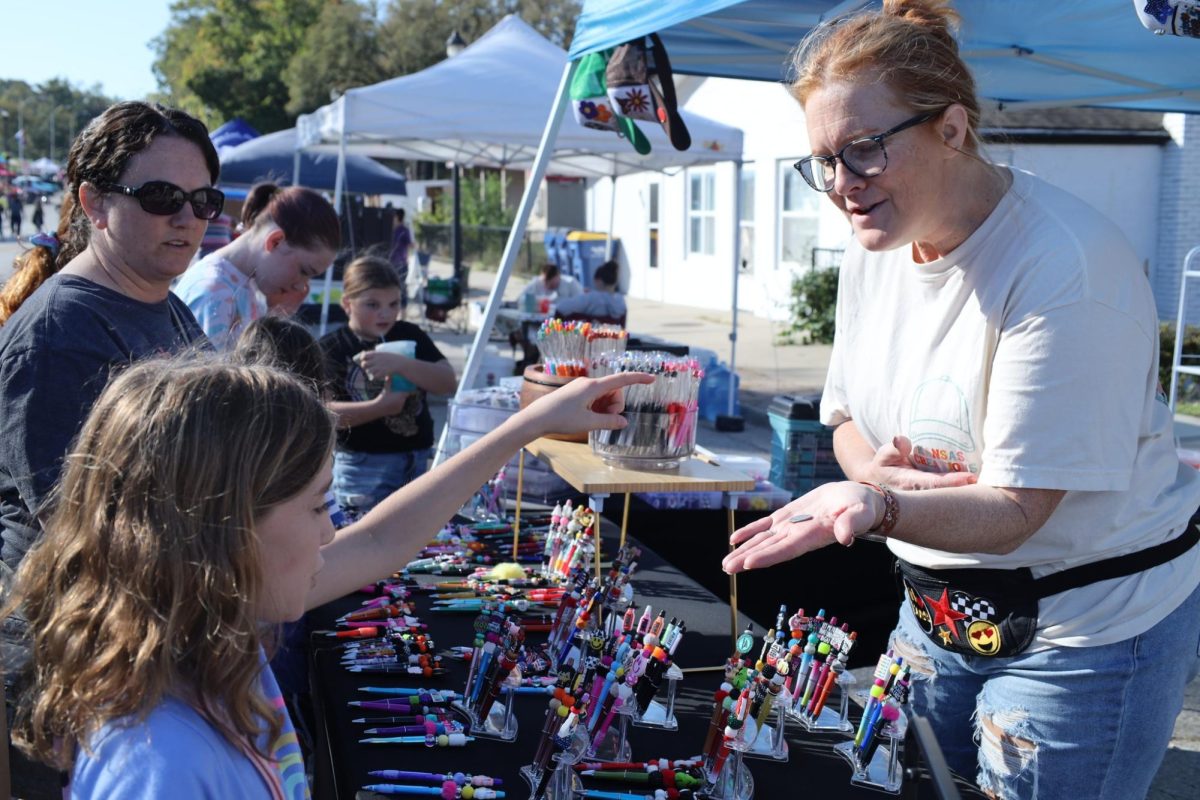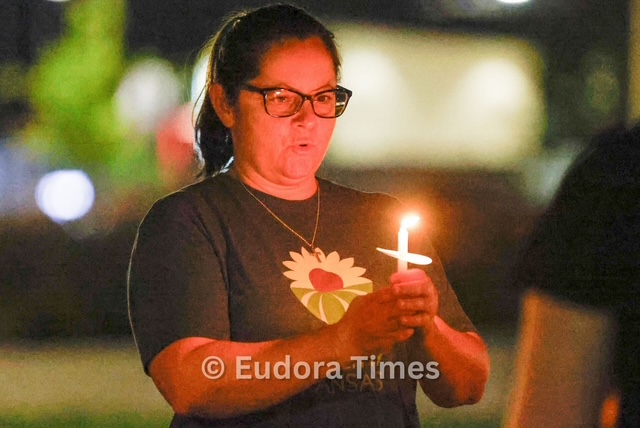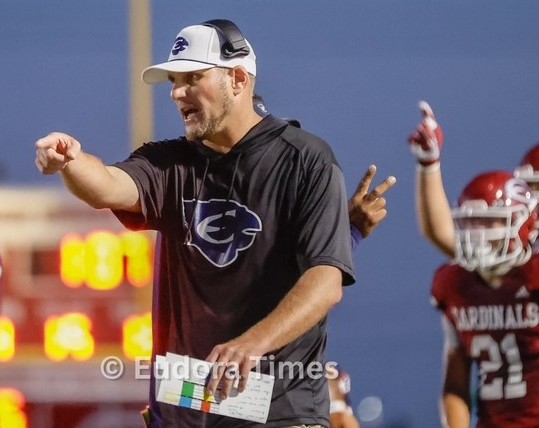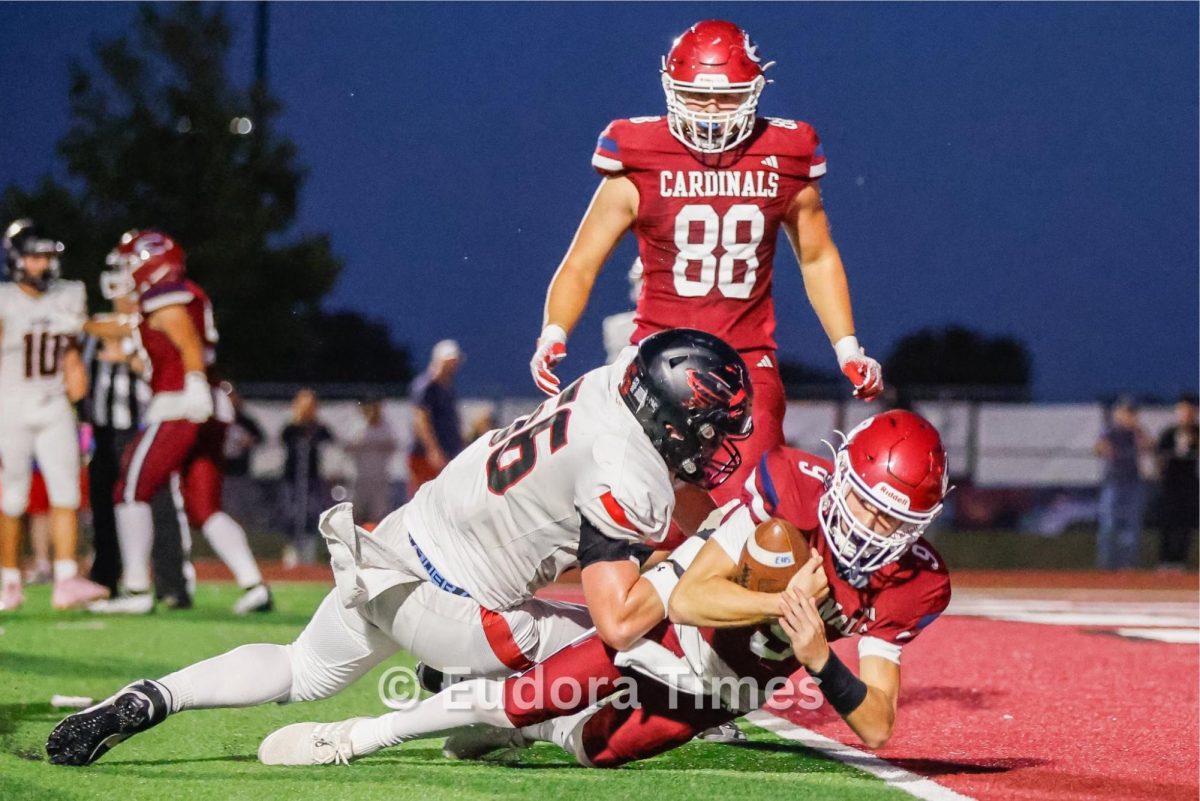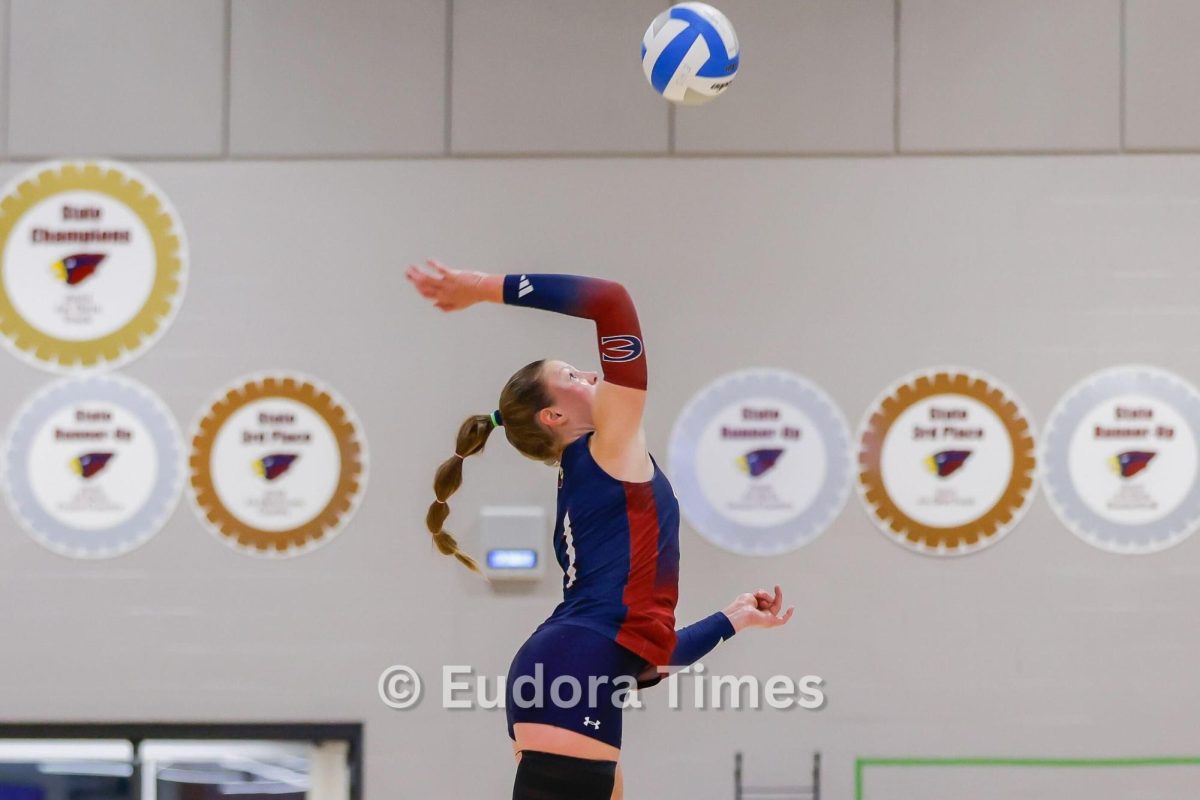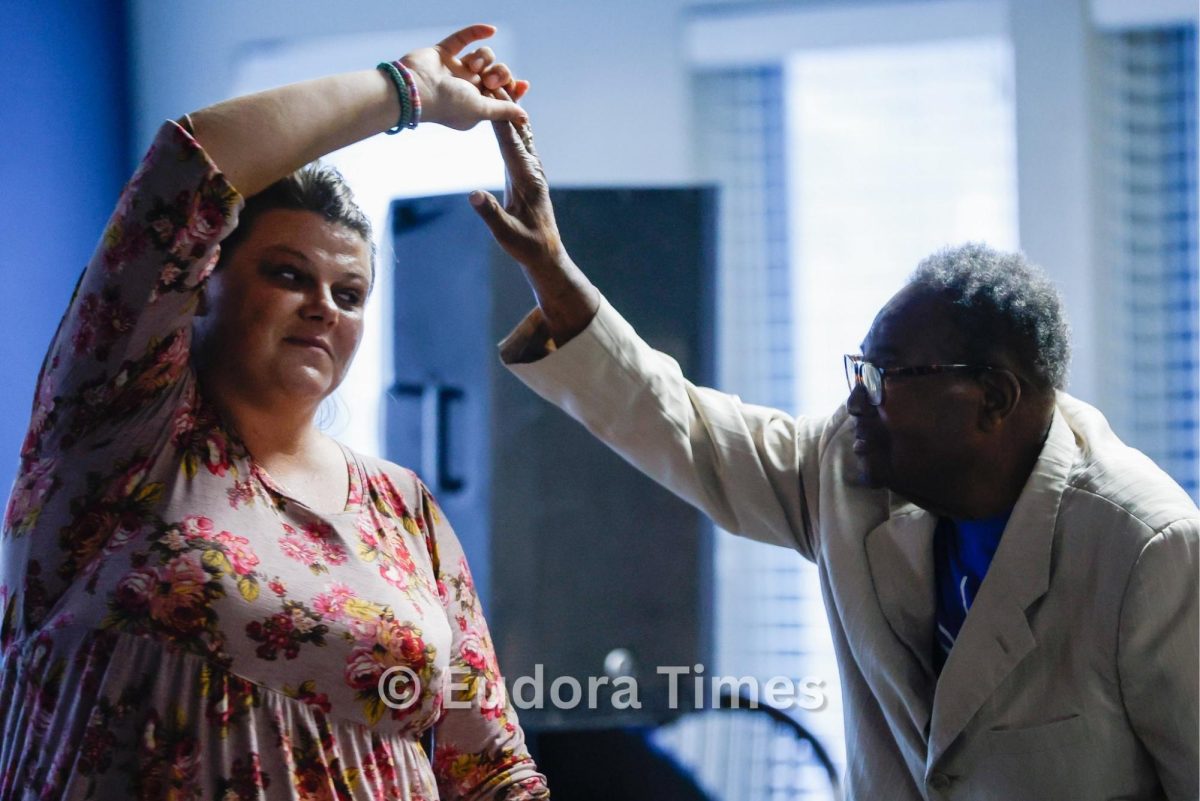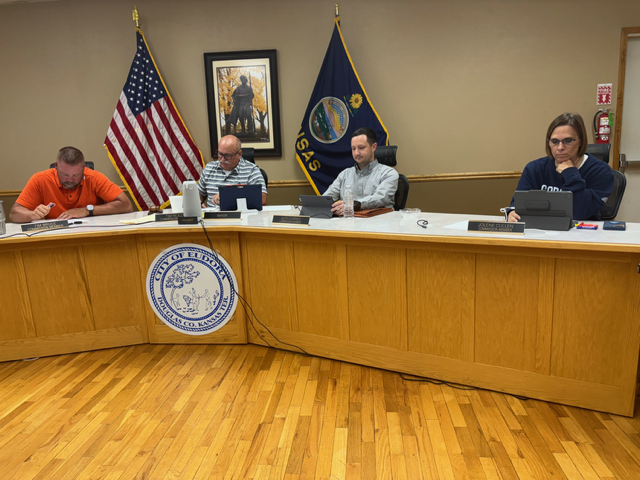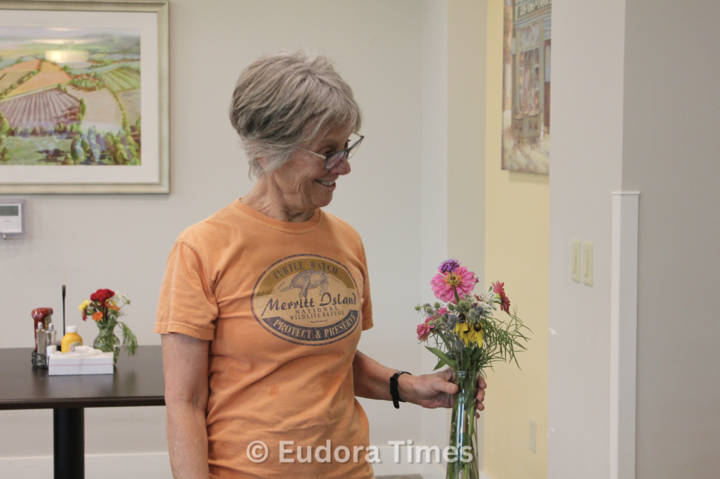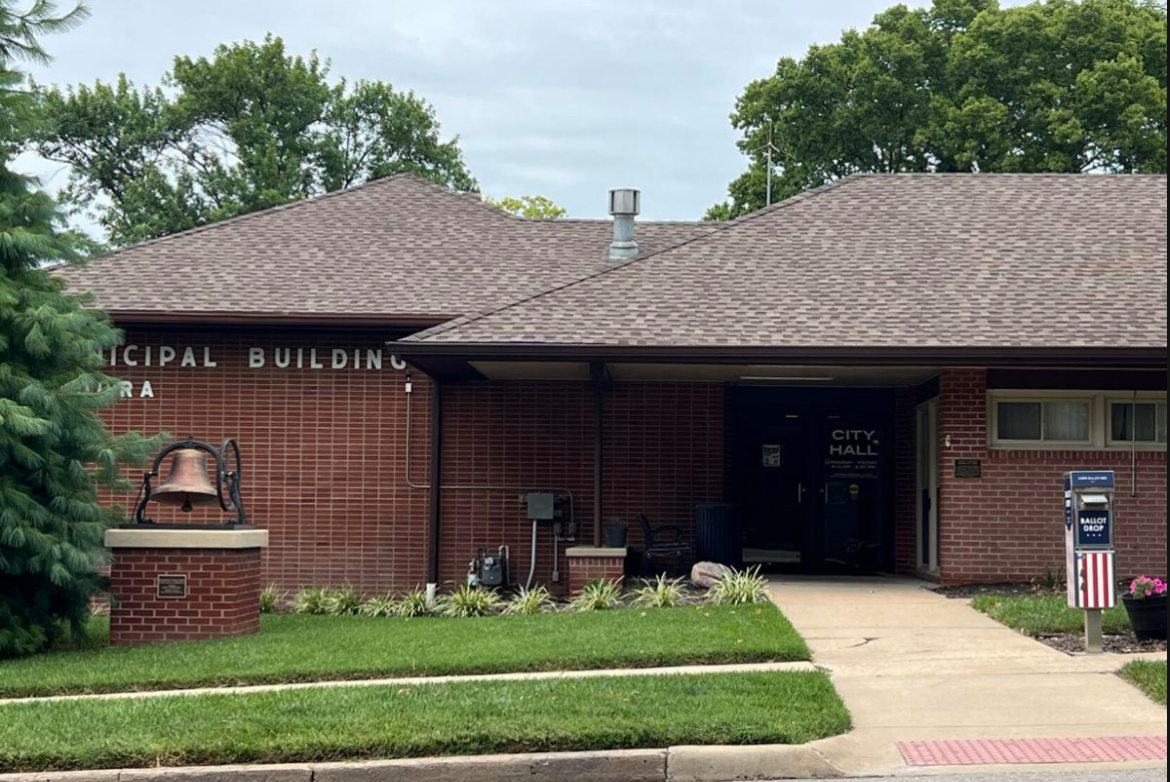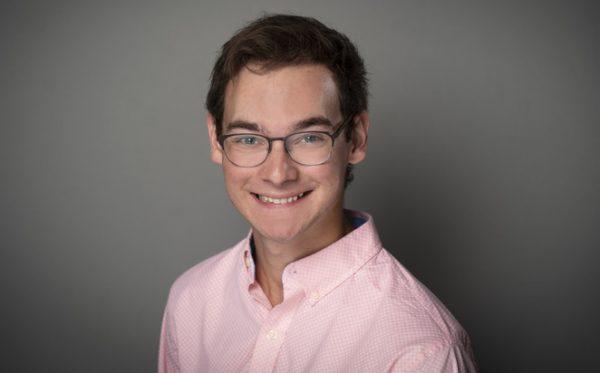Zack Daniel said his top goals are encouraging intentional commercial development and supporting residential growth as he takes over as city manager.
Daniel served two years as assistant city manager in Eudora before the City Commission chose to end former City Manager Kevyn Gero’s contract in June. He has served as the interim city manager since.
Last month, the commission announced it had selected Daniel as the new city manager. His contract will be finalized in the next few weeks.
In an interview with the Eudora Times, Daniel shared his thoughts on pressing topics around town and his vision for Eudora’s future. The interview was lightly edited for clarity.
If this kind of work matters to you, please donate to support local news in the Support the Eudora Times box here.
Why are you interested in serving in city government?
I got my undergrad in political science, and the typical track after that sometimes leads you to law school and that kind of avenue, which wasn’t overly interesting to me. This was at Emporia State. A professor mentioned that one of his previous students had done some work at the local city hall in Emporia and encouraged me to go that route.
At the time, there wasn’t really an intern position at Emporia City Hall. I went not really knowing what the whole scope of city government was, but it was just something to do and really put myself out there. I’m available for work, and just want to learn and have some opportunities to see what this is all about.
And from there, I really took to that kind of work. You really, especially at that local level, as an undergrad, you know, you really kind of see the tangible difference that the local government makes but just wanting to put myself out there and learn and have some opportunities to see what it was all about.
From there, I really took to that kind of work. Especially at the local level, as an undergrad, you see the tangible difference that local government makes on everybody’s life within the community. That could be as small as shaving down a pothole and making somebody’s drive a little bit smoother. Those tangible benefits that people experience from the work City Hall was doing really had a lot of appeal to me. It’s a good way to get plugged into a community, provide real assistance and participate in the larger community-building aspect of things, which I really like.
What do you see as the role of the city manager for a community?
That’s going to vary from place to place, but I think my guiding structure, my guiding light, comes from one of my previous mentors when I worked with the city of Wichita. He had this question he would pose, and he used Arby’s as an example. Their internal mantra is that they want to make the best roast beef sandwich money can buy. His question to his management staff, and to me as a management fellow at the time, was: What is the local government’s roast beef sandwich?
To me, what I’m trying to cultivate is residents who trust their local government. The issues we deal with are front-facing. Everybody drives on our roads, participates in our parks and rec programming and benefits from our utilities. Everybody has that onboarding experience and interaction with local government.
The next part that I think the city manager’s office can help fulfill is encouraging trust between residents, professional staff and the vision the elected bodies want to execute. If you have that trust, you can execute real priorities and move things forward a lot easier than if there’s second guessing, suspicions or questions. You want to have an open door and answer questions people have. It’s justifiable that people have those questions and expect answers from their local government.
I think the role of the manager’s office is to help answer those questions and facilitate that trust, so there’s a shared, unified vision from City Hall broadly and from residents and other community stakeholders.
How do you see the city manager’s role in working with the City Commission?
They have a vision they want to execute. They’re the ones elected by the residents here and have had a tremendous amount of trust placed in them. I think we have a really great elected body right now, and we’ve had the benefit of a long history of great elected officials with a clear vision for the community and how we want to position Eudora in the larger Douglas County scheme of things and in the larger state of Kansas scheme of things.
Our role as professional staff is to help them execute that vision in a way that’s sustainable, where we’re not burdening our current residents and taxpayers, and can provide for long-term growth and prosperity for everyone. It also needs to be easily communicated to the community, so they at least have a sense of what’s going on and what the bigger picture might be.
What role do you think the city should play in economic development?
We as a city government, I think, need to be responsive to larger macroeconomic trends and be able to respond to that kind of thing. We also need to have a more focused, myopic look on the realities facing Eudora. What’s going on in Lawrence may affect what’s going on in Eudora. What’s going on in Eudora may affect what’s going on in De Soto.
There’s an ecosystem that we fit within, and really right-sizing our approach to some of those things is what I think we need to be focusing on so we can better position ourselves to take advantage of the growth that’s happening around us and leverage it to where we’re experiencing the benefits of that growth and also providing for growth internally. Our schools can benefit from it, and local businesses can benefit from it, and it can provide more resources for some of these improvement projects that we need to sustain ourselves as a city.
What are your views on the proposed STAR bond district to bring more sports/entertainment to town?
I think an important thing to remember is STAR bonds are a tool. There are lots of different tools within the economic development sphere that are at the city’s disposal to encourage that kind of development. The reason we’ve had a lot of discussion about the STAR bond tool is because we’re strategically placed along the K-10 corridor, and that visibility for commuters between Lawrence and the larger Kansas City Metro to the east puts us in an advantageous position.
Historically, the STAR bond tool has been a way we could leverage our position geographically and use those state opportunities to move forward on some of those projects. Larger than that, with the STAR bond project south of K-10, we recognize that we also want to diversify our tax base.
If you look at our budget, property taxes make up one of the larger percentages of the revenues within the general fund, which funds general operations. That means the current property taxpayers in the city are among those carrying that burden. If we can pursue projects that encourage different kinds of commercial development and new cash registers in town, then we’re able to spread that burden around to different payers, and not necessarily just property taxpayers.
What additional steps do you see needing to be done to complete the Nottingham development?
I think, to my earlier point about being mindful of some of these external factors that have been affecting the market, this project has been in different levels of planning and review since prior to COVID. Post-COVID, it changes some of the market factors we’re dealing with, and being able to be nimble and responsive to that is going to be important.
The City Commission still has a very specific vision for that district in terms of the role it serves in the broader community. We want to build from the ground up that communal gathering space and have an area where we can host programming like our farmers market, co-programming with the Rec Center, or partnerships with businesses around there.
Being able to do that while also working within the current market dynamic is the mindset we need to be in to make sure that property is moving forward. We’ve had a lot of interest in it, especially over the last couple of months.
Making sure that we are purposeful in the opportunities there, and not just saying yes to every single development that comes forward, is really top of mind for our elected officials. We want to be mindful that we’re open for business, but we also want to do things strategically, so we’re putting ourselves and potential new partners and businesses within the district in the best position to succeed.
Taxes remain a concern among residents. What do you see as strategies to address this?
I think the main strategy we need to be mindful of internally as staff is to be as proactive and forward-looking as we can be. That is not a state of circumstances unique to Eudora. We did an affordability index earlier this year that positioned Eudora against some of our other peer communities we tend to compare ourselves to. This included property taxes levied by the city, the school district and the county, as well as our utility billing structure.
If you look at the granular data from a property tax standpoint, the portion of the dollar the city actually controls, we’re not really out of line with some of the other communities. It’s on some of these other factors where Eudora starts to really feel that crunch from business owners, residents and property owners within the city.
If we are mindful of projects we have down the line, we can be more strategic in how we place those projects so we’re not burdening our current taxpayers all at the same time. There’s an affordability question that we want to make sure we’re approaching with a steady hand, and that the projects we put forth have funding strategies that are sustainable over a long period of time, because they are projects that will serve people for a long time. We’re mindful of those concerns and want to make sure we’re responding to them appropriately, but also providing the level of service that folks have come to expect.
De Soto has benefited from the new Panasonic plant with additional businesses and lower taxes. Do you think there is a way for Eudora to see economic benefits from the plant? How so?
We’re really happy to see that kind of growth in the region. For De Soto specifically, you also have to be mindful of certain conditions that De Soto was able to benefit from—namely, their location, where the Panasonic plant is located right now, and the infrastructure that was there to support it. That was a site unique to De Soto. I don’t want to get into a position where we’re trying, quote-unquote, to keep up with De Soto, because some of the factors they are benefiting from just aren’t factors we have right now.
That said, we do want to make sure we’re tracking those developments so we can position ourselves to maximize the benefits that Eudora will experience. A lot of that has to do with housing. The Panasonic plant highlighted a housing crunch in this part of the state, and Eudora is no different. We have a need for all kinds of housing stock, and that existed before Panasonic, exists now, and will exist for the next couple of years.
Luckily, we’ve got a lot of projects in different stages of development to start addressing some of that. We had the Pascal’s Landing project that the city supported with some fee waivers so they could secure their federal tax credit—those building permits have been issued. We’ve had annexations over the last couple of years, including two happening at this evening’s [Wednesday evening’s] Planning Commission that will expand some residential options. We’ve got infill opportunities to maximize the land currently within the city without overly stretching our utility capabilities.
The Panasonic plant kind of shined a light on the housing need we have here, and everywhere else in the region. We’re trying to position ourselves so we’re not getting ahead of our skis in some of these efforts, but to set the table for growth now and sustainable growth in the future.
How do you balance desires for growth with those who want Eudora to maintain a small-town feel?
We’re trying to thread that needle. To me, residential growth is economic growth. Residential development is economic development because we need residential growth to support our current businesses and to attract new businesses. We need new families to move in so the school district has new students to counter some of the shrinking enrollment numbers they’ve been experiencing. We need new addresses to pay utility bills to support some of the infrastructure projects we’ve got going on.
None of these projects and priorities exist in a silo; one speaks to the other. We as a city are trying to move forward on that while also maintaining the ‘Eudora-ness’ of it all, not losing our identity, and really trying to make that front-facing in a lot of our projects.
The commission approved the new Parks and Rec master plan in May. What do you think should be prioritized in that plan?
The prioritization piece of it is really up to our community. Our Park Department has been very good about seeking and getting some of that external funding through state and federal grants or other grant programs that are out there. Pilla Park is a really good example of that.
I think one of the best parts of our master plan is that it looked at our parks system holistically. The recommendations it made for Pilla Park were done with some of the recommendations and opportunities for CPA Park in mind. We’re not cross-pollinating the kinds of communities those parks are trying to serve, and we’re trying to make each site unique.
Pilla Park — I’m excited that the grant opportunity became available and we were able to secure that funding so soon after the master plan, because I think it’s going to be a really good, real-world example of how we’re utilizing the master plan and the recommendations within that plan, which were informed by resident input, surveying and community engagement, to move it toward an actionable and tangible project like Pilla Park.
The fire department has previously discussed the need to increase the number of full-time firefighters, similar to other nearby towns. What are your views on this?
We’ve got a new fire chief in Chief [Justin] Lee, and I think he’s done a really great job. He’s hit the ground running and getting caught up on some of the local conditions the department is dealing with and what the community expectations are, more so than just focusing on, we need full-time fire. Really, their focus really is on providing a fuller amount of fire protection, and that can come in a lot of different ways.
Our chief has talked with the City Commission in meetings about his apparatus plan, some of his recruitment and retention strategies and some of the things we’ve got planned for the 2026 budget for training opportunities. If you track it from year to year, the 2026 budget does have quite a lot of investment within the fire department in large-scale equipment, vehicle planning, apparatus planning, training opportunities and recruitment and retention strategies.
What we’ve talked about through the summer during budget development is that we fully expect next year and beyond to have a lot of focus specifically on the staffing piece. A lot of departments have a combo volunteer and full-time model. The question then is: What’s the Eudora model we need to start pursuing and putting together so we can provide the appropriate amount of coverage and public safety assurances that the community should expect?
What do you see as the most pressing Public Works and infrastructure improvements for the city right now?
So it ties into that conversation we had about residential development and our utility infrastructure. We’ve reached the end of the useful life on a lot of our big facilities. Our water treatment plant, specifically, is 70 years old. It’s in a flood zone area, which prevents any kind of expansion or addition to that facility. We’ve taken the first steps to move forward with the construction of a new water treatment plant, which will increase capacity for the water utility to serve the residents we have, as well as give us room to grow.
Electric is another area where we’re actively engaged with different projects, making sure the electric service we provide is appropriate for folks. We don’t want to be in a position like some communities around us, where we’re having to dramatically increase some of these monthly utility rates in order to pay for these. We’re trying to be deliberate and proactive in communicating upcoming changes and helping people prepare for them.
Outside of utilities, I think our roads are always going to be an area of a project for the department. They’re related to utilities as well in that we don’t want to be in a position where we are putting resources to make street improvements and do a mill and overlay over a section of road that’s on top of 70-year-old clay pipes that we know at some point are going to fail and will need to go and make those improvements.
Our public works staff does a tremendous job of maintaining the assets that we have, but assets have a useful life, and so making sure that our utility projects are working in concert with our street projects, where we’re maximizing those dollars and not duplicating a lot of that effort, is, I mean, that’s an issue that a lot of communities are facing, and we’re not unique in that. But I think luckily we’ve got a really good public works staff to help us shepherd through some of those projects.
There is a housing shortage in the county. What role do you think the city has in addressing this?
We want to be open and talking with developers. We have a lot of opportunity here in Eudora. I mentioned our strategic location in terms of the K-10 corridor, which gives us access to some of those employment sectors in Johnson County and the larger Kansas City area. But for folks who don’t want to live in that area and want to take advantage of that small-town feel that Eudora has, really marketing and making folks more aware of the opportunities out there is a big part of what the city government needs to be doing, and what I think we have been doing over the last couple of years.
We also want to be mindful of the current limitations of our utility infrastructure, so we’re not overplanning for residential growth that our current systems don’t have the capacity to serve. Making sure those two approaches are balanced is really top of mind when it comes to planning for that kind of growth.
With the senior community such an important part of Eudora, what do you see being needed to continue to support them service-wise?
They are a big user of our rec program and our rec facilities, and we love having them. We have a staff that’s really engaged with them. They are our seniors, and seniors broadly serve a really important purpose. A lot have been here for a long time, so that sense of community that you talk about comes with those folks. We want to make sure that we are giving them proper deference and making space for them, and that speaks to the housing needs as well.
If you’re an older person who’s in a house that you don’t want to or don’t have the ability to maintain anymore, Eudora has limited options for how you can downsize that and do it at a cost savings.
We want to have those opportunities for our senior folks who want to stay in the community, who have been good partners with us, take advantage of our programming, and are really good cheerleaders for not just what we do, but what the Chamber does and what the CVB does. They’re engaged, and we’re really lucky to have as engaged a senior community as we do. Maximizing that relationship is really something important.
What do you see as your role with others in the city, such as the business community, the school district, the library, etc.?
I think we, the city, need to have an open-door approach. If there are projects, priorities, or issues that these different groups are seeing and want to discuss on a more broad level, we certainly want to be participants in that conversation. Whether that’s the school district, where some of their staff and the superintendent have put together these recent community conversations, whether it’s the Senior Foundation that wants to run through different programming ideas, or whether it’s CVB, who want to talk through different ways to improve and expand events here in town, we want to be willing partners.
I think it’s an obligation of ours to be good community partners, to be open to these ideas, and to try to see where the city fits in on some of that.
The city has tried some new initiatives like the farmers market and events at Village Green, as well as the senior citizen property tax credits. Are there other ideas that you would like to try in the coming year?
This is less of a new program, a new kind of event type thing, but I do think we should be — and a lot of this is just staff limitation — but if we can prioritize our efforts differently, by having better communications to residents, we can close the loop on improvement projects that we’ve done, whether that’s part of a larger initiative or whether that’s fixing a section of the street or fixing a pothole.
Being a cheerleader for our own folks and the work they do, so people know the kind of work that we’re doing, facilitates that trust. They see our folks out there, they can go to our city website and get an update on city projects, they can visit our Facebook and just see something nice that the parks department is doing, or the public works department is doing, or the police are doing.
Putting effort toward improving those communication efforts, I think, is important. If we’re talking about specific events, we unfortunately didn’t get the registrations for the Great Kaw Adventure Race this year to make it a go, and we’re going to talk about different strategies to improve that with our community partners and the Chamber next year.
I think that’s got a real opportunity to be a regional draw for the community, taking advantage of the historical aspects we’ve got, taking advantage of our access to the river and the boat ramp, and shining a light on that infrastructure and those facilities. It’s a really good opportunity; it’s just about making sure we structure it so that people are hearing about these opportunities and are attracted to them, and want to come to Eudora.
There were conversations earlier this year about a joint City Hall/library before the Library Board ultimately decided to buy the former quilt shop. First, explain some of the challenges that City Hall is having that it is considering a new space, and should the community expect further conversations about a new City Hall anytime soon?
If we’re talking about just the administrative offices located on Main Street, we’re really at capacity in terms of the amount of square footage we have for office space. That becomes difficult when we have needs like bringing on a city planner next year, which is part of the budget and has been in discussion for a long time, and that person’s got to sit somewhere. We’re being creative with how we utilize some of our space and trying to use it a little better.
To answer your question about whether the community should expect more conversation about it: yes, I think so. That’s not the same as saying we’re on the front end of a definitive City Hall redevelopment project, but I do think it’s worth the effort to do the research on, what are our space needs? How much square footage are we currently using? How much do we need right now to support current staff? And what’s a realistic metric to look at for the square footage we would need to support new staff as the city continues to grow and new services need to be offered?
We’re always going to be looking at ways to improve those facilities. We’ve got a City Hall that is functional at the very base level, we just needed it to be functional. We need to have meetings, house the staff we have, and host community public meetings for the City Commission and our Planning Commission. It’s obviously a nuanced project, and we’re going to be in data-gathering mode for a while before any firm project gets over the line.
In the past two years as assistant city manager, what have been your biggest takeaways from working in Eudora?
I think my biggest takeaways during that time have been really, really blown away at the amount of outside of the city, there’s a lot of different Eudora groups who want to participate in the development of the city, and so that’s organized groups like the Chamber or the Lions Club or our engaged Senior Foundation. And that’s individual businesses, like we’ve got on Main Street, or that we’ve got within the Nottingham district. And that’s just individual people who have been here for a while, or are a new family and want to see the city continue to grow. From really all those different levels, you’ll be able to find folks who have input that they want to give.
I’m really, from an administrator standpoint, that’s a really kind of heartening thing to encounter, that you’ve got an engaged community that wants to have a role in how we grow and the kinds of growth that we’re seeing and those kinds of things.
So when the opportunity for the city manager position opened up, having that there, having that kind of buy-in with the rest of the community in terms of wanting to see the community thrive and see the city thrive, makes it kind of an exciting proposition to be in the position I’m in to help some of those folks see some of those priorities through.
What does Eudora need in the next assistant city manager?
We’re kind of having those conversations right now. We’ve gone through a little bit of transition over the last couple years, so I want to give our department heads the ability to provide some input into what their expectations are of the city manager’s office. I’ve been in the assistant city manager position for the last couple years, and kind of know the role that I have filled, so the engagement with those other groups that I have had, those interactions as the assistant city manager, is going to be important, too.
It’s not so much that we need to just replicate the kind of projects or specialties that I brought. I’m already here, so working with departments internally to see what those needs are, to respond to the needs of parks, police, public works, fire, and administration, and make sure their needs are met in terms of what support the city manager can offer, and then rely on the community as far as what their expectations are, and then the city manager’s office broadly. That’s not to say that it’s an open question at this point and one that we want to get answered, but luckily, we’ve got a lot of folks who are willing to provide that input.
What do you see are your top three priorities right now?
- Finding ways to encourage residential development, and doing that in a purposeful way.
- Balancing our big-ticket and expensive utility projects to support residential and commercial growth.
- Leveraging our position geographically among that larger Lawrence or Kansas City metro area to make ourselves a community of choice for not just residents, but for businesses as well.
What is your overall vision for the city?
I think it goes back to your earlier comment about how we grow, how we develop, how we satisfy all these different needs while maintaining that ‘Eudora-ness’ of it. We have a very strong community character that people are rightfully very attached to, and making that part of the overall vision, articulating that the best we can, and making that front-facing is really one of my number one priorities.
That’s a placemaking thing, and Eudora is a special place. Making sure that people who don’t live here know that Eudora is a special place, and especially for the folks who already do live here, the businesses who have set up shop here—they’re proud to be here, and I’m proud to be here. I want people to seek out Eudora for those kinds of opportunities, for their family, for their business, and for all kinds of growth. Maintaining that identity and leveraging it the best we can, while also providing for growth, is what we’re trying to do.
Reach reporter Cuyler Dunn at [email protected]
